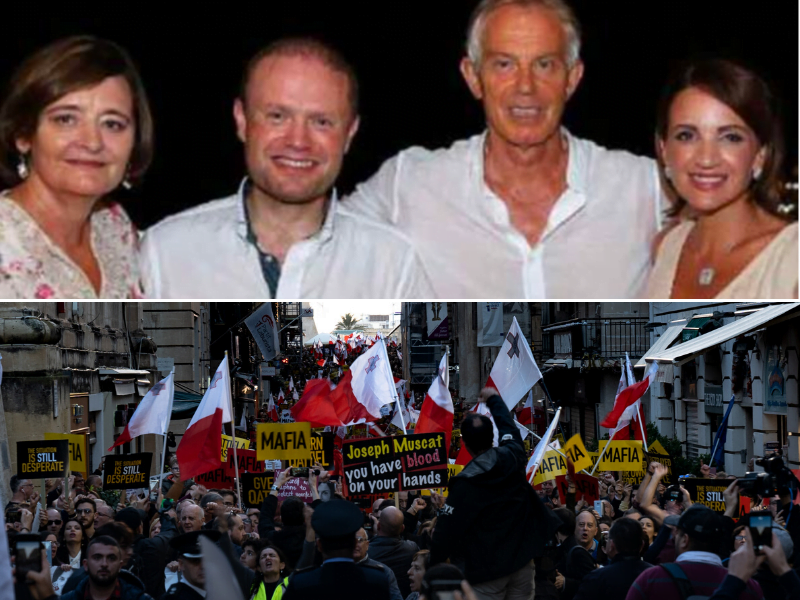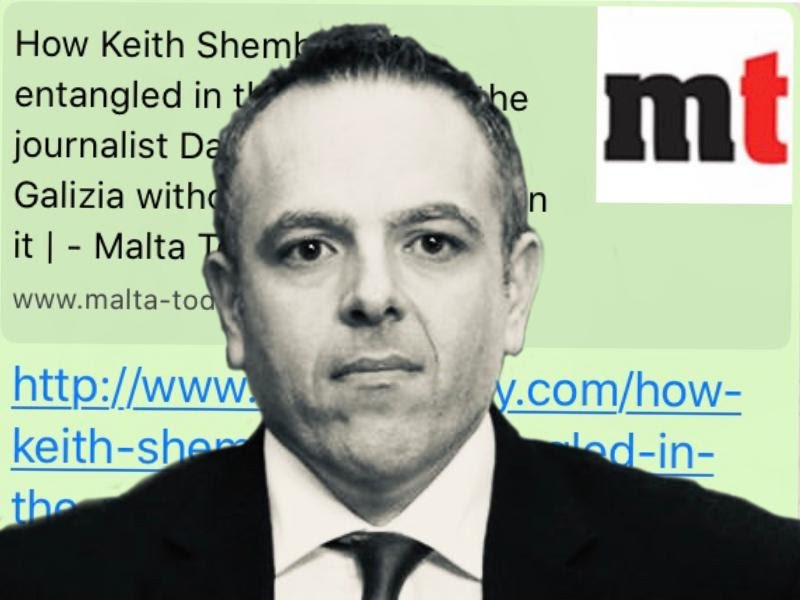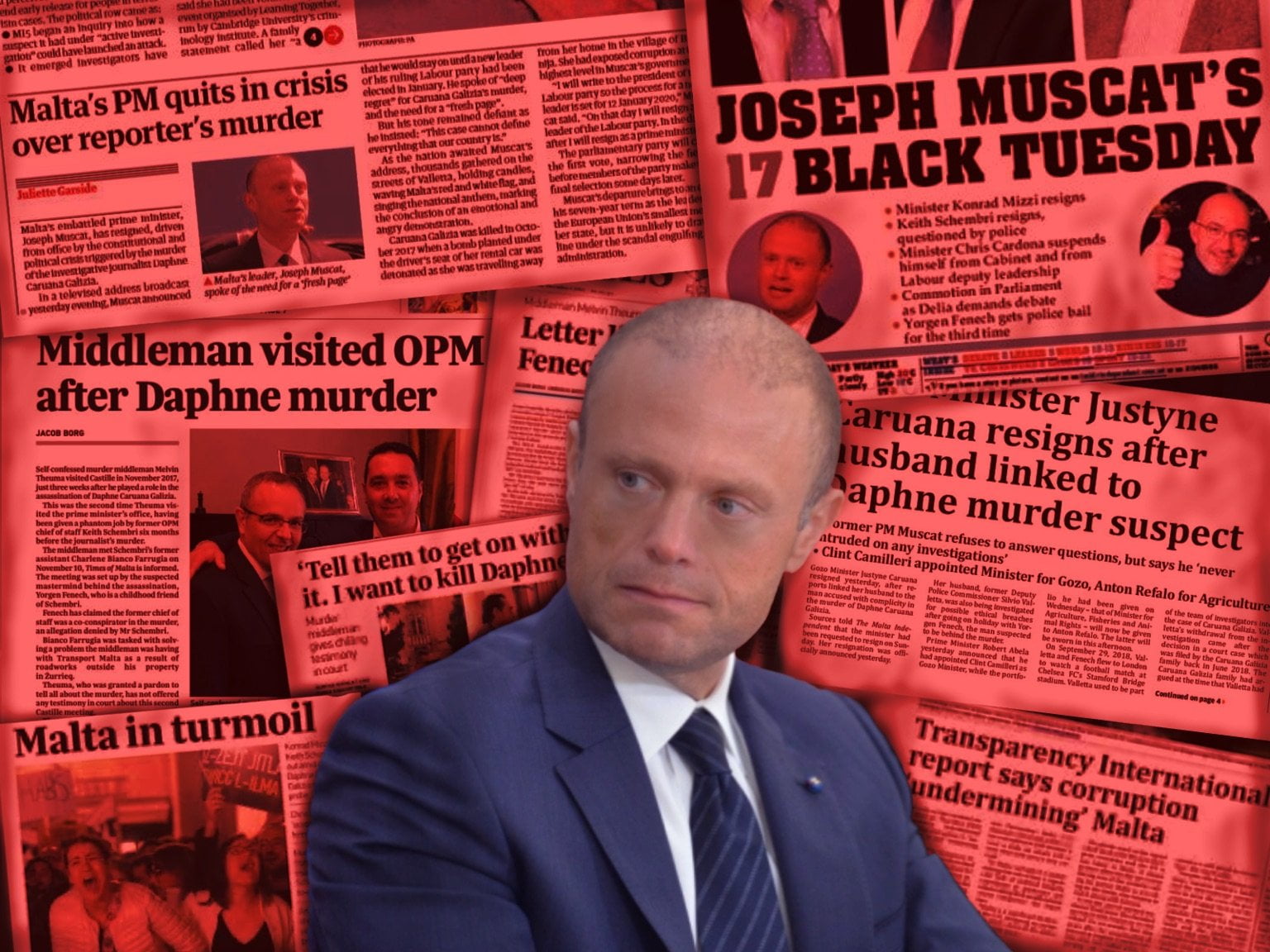Let nobody say that former prime minister Joseph Muscat has been idling away his time during the lockdown.
Just four months after his long drawn out resignation, it was reported that he was among a small group of individuals advising the government on how to manage the country’s post-COVID-19 economic recovery.
Meanwhile, The Shift reported Muscat is now a member of the Nizami Ganjavi International Center, an Azerbaijani government-funded political think-tank and lobby group promoting the country and its President’s goals.
He has also featured in a discussion chaired by the Commonwealth Secretary, Patricia Scotland, about the impact of COVID-19 on tourism, debt and disaster risk management.
Notwithstanding the public’s notoriously short memory, for someone who just last year managed to clinch the OCCRP’s Man of the Year in Organized Crime and Corruption award, these consultancies/expertise appearances can be seen as a clear attempt at burnishing one’s reputation or, as it is becoming more commonly known, ‘reputation laundering’.
More money, more problems
Whitewashing one’s reputation is not a new phenomenon. Rather, it is a tried and tested trick. It has been employed in particular by kleptocrats as part of a clear strategy for securing their ill-gotten wealth overseas.
After having first secured their money as well as a residence and/or citizenship overseas, they then start minimising or obscuring evidence of corruption and authoritarianism in their home country.
They rebrand themselves as engaged global citizens using a series of interrelated practices that include running aggressive image-crafting and public relations campaigns, and using philanthropic activities to establish themselves in a web of transnational alliances.
Neither is this practice limited to individuals. Numerous repressive regimes outsource their diplomacy via expensive PR firms, lobbyists and front groups.
Positive PR for such governments is so endemic among London PR firms that they have become known as “London launderettes.”
Some notable examples include the services of former UK Prime Minister Tony Blair who in 2011 offered, through his consulting firm, political and strategic advice to Kazakhstan’s President Nursultan Nazarbayev – it included help in shaping the Kazakhstani government’s response to international criticism following a brutal crackdown on protests that left 14 confirmed deaths.
And if that wasn’t controversial enough, in 2015 the same consultancy firm went on to advise the government of the then Prime Minister of Serbia, Alexsandar Vucic. The fact that Blair had been a chief proponent of the bombing of Belgrade 19 years earlier was apparently water under the bridge.
He is now giving workshops on “deliverables” – a strategy that uses the creation and subsequent speedy resolving of a manufactured problem in order to divert the public’s attention from a real one.
Blair’s endorsement of disgraced former Prime Minister Muscat during a Labour Party mass meeting in May 2017, in the lead up to the general election, hailed Muscat as “a great example of what progressive politicians could do in power”.

Famous firms, infamous clients
Even before Muscat’s electoral victory in 2013, the Nationalist administrations were no strangers to working with glitzy PR firms.
Records show that in the early 2000s, the Maltese government employed the communication consultancy services of Bell Pottinger, at the time one of London’s leading firms with a reputation for taking on some of the world’s more unsavoury clients, including Augusto Pinochet, a Chilean dictator, Alexander Lukashenko, a Belarusian strongman, and Asma al-Assad, the Syrian president’s wife.
The firm was last used by the Maltese government to carry out a ‘qualitative research project’ in 2015. The company closed in 2017 after a secret campaign to manipulate public opinion in South Africa was exposed.
Eye-catching as this may be, these efforts pale when compared to what came after 2013.
It became immediately apparent to anyone who was paying attention that image management was instrumental to Joseph Muscat and his government.
Following a sleek electoral campaign that included the involvement in part by Nicholas Wright/Sentio among others, Muscat hired Leslie Skipper, a former BBC editor turned media guru, as media adviser, into his private secretariat, and who then went on to advise a number of other ministries.

Public records alone show that in the years following the 2013 election, there is a marked increase in the outsourcing of consultancy work to both international PR firms as well as legal firms (many of which also specialised in reputation management), each with their own eye-watering fees.
Two of the more recent examples include a report, dated December 2019, which describes how Chelgate, a British public relations firm, that specialised in crisis management was tasked with defending the Maltese government’s image in EU Capitals.
Two months earlier, the Maltese government had engaged a UK law firm, known for its aggressive approach, to fend off questions in connection with the book ‘Murder on the Malta Express‘, which probed the assassination of journalist Daphne Caruana Galizia.
Swedish daily Svenska Dagbladet also reported in November 2019 that journalists in Brussels were approached by a British PR firm hired by the Maltese government to spread misinformation on Caruana Galizia with journalists reporting there.
Maltese ‘deliverables’
That the Maltese government engages in bestowing feel-good “deliverables” on its citizens, is also quite evident. Needless to say, this strategy did not start with the current Labour administration, but it can be said it has been perfected by it.
Who can forget the jaw-dropping press conference in 2014 where the “good news” the prime minister hinted at was nothing more than a 2c decrease in the price of fuel? Or for something even more recent, how about that much touted one-off bonus given to households to compensate for the increase of bread and milk prices registered last year? Of course, not all these deliverables work.
Prime Minister Robert Abela’s announcement on granting an amnesty to those fined for breaking lockdown rules, backfired spectacularly.
While Keith Schembri’s attempt to manipulate his online presence was thwarted by The Shift, Konrad Mizzi conveniently stays away and John Dalli’s last online appearance seemed like he was taking part in an elaborate parody.

The Keith-version rips-off Malta Today’s logo but includes other not so subtle clues as to its origin and aims – the site changed focus after The Shift exposed it.
Muscat’s recent outings give the semblance of legitimacy. Never mind that the Commonwealth secretary-general, Patricia Scotland, who chaired the online commonwealth seminar, is herself under scrutiny for having circumvented normal tender rules to give $500,000 worth of work to a friend and former colleague.
Never mind that Azerbaijan and its sordid relationship with Malta under Muscat perfectly encapsulate the idea of how kleptocrats blend financial and political tactics in targeted influence efforts.
There is obviously nothing wrong with trying to rebrand yourself as an economic expert based on the veneer of your country’s economic success, but doing so while having systematically refused to acknowledge, let alone address, the dark underbelly of wasted public funds, of corruption scandals and of impunity that flourished during your tenure and which culminated in the murder of an investigative journalist, it is just that – a rebranding exercise.












